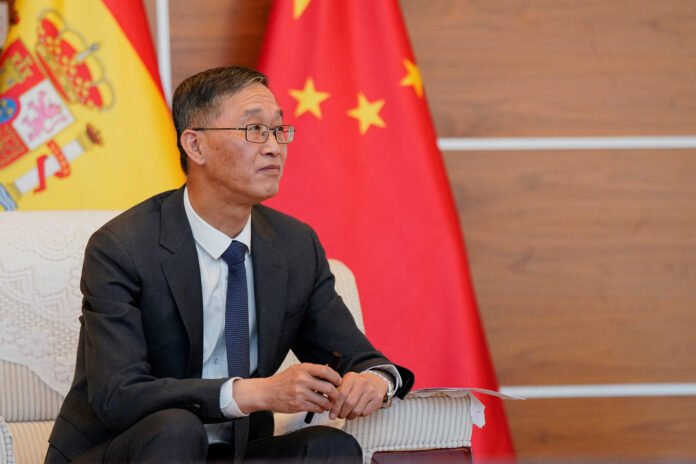U.S. President Donald Trump stated this week that a trade agreement between the United States and the European Union is inevitable, particularly as European nations seek to avoid impending tariffs that could reach 20% by July.
Meanwhile, China, already navigating the weight of 145% tariffs, is likely aiming to deepen its economic ties with Europe — potentially complicating Washington’s efforts to solidify a deal with the EU.
The sweeping trade measures imposed under Trump including across-the-board tariffs on steel, aluminum, automobiles, and more have led some European leaders to reassess the reliability of the United States as a longstanding partner. In this shifting geopolitical landscape, China could see an opportunity to exploit any fraying of traditional alliances to its own advantage.
According to Elaine Dezenski, a senior director at a prominent global policy think tank, “The political climate in Europe makes it difficult for leaders to be seen as capitulating to Trump. Turning to China though fraught with risk — might appear attractive.” She noted that Trump’s aggressive tariff policy has strained relationships with key allies, making trust-building a challenge. Still, many European leaders remain cautious of China’s intentions.
China, facing mounting economic pressures, may be prepared to offer favorable trade terms to the EU. A potential increase in European exports to China could prove enticing, especially given the size of China’s consumer market compared to that of the U.S.
However, Europe faces its own set of challenges in navigating this global trade puzzle — particularly concerns over Chinese dumping. This practice, where goods are sold below production cost in foreign markets, has long been a point of contention. Sectors like solar panels, electric vehicles, and consumer electronics have been especially affected.
The President of the European Commission recently addressed these concerns in a conversation with China’s Premier, stressing the need for China to help mitigate trade disruptions caused by tariff shifts. She also emphasized the importance of structural reforms to rebalance the trade relationship and improve market access for European goods and services.
Despite a recent spike in Chinese exports to the U.S., the continuation of the trade war is expected to dampen that momentum. As exports to America decrease, China may seek to redirect its goods to Europe. While the issue of EU tariffs on Chinese products wasn’t directly raised in the recent discussions, there is growing speculation that Europe could implement its own trade barriers if dumping increases.
“European resistance to these practices has made leaders cautious,” Dezenski said, noting that any agreement would likely require China to increase imports from the EU something Beijing has historically resisted in favor of protecting domestic producers.
In 2024, the EU’s trade deficit with China stood at roughly $345 billion, a sign of the significant imbalance in the relationship. And while China may be extending an olive branch to Europe, frustration has been building over decades of uneven trade dynamics.
Steve Yates, an expert on China and global security policy, pointed out that despite potential incentives, the EU and China are unlikely to forge a deep enough trade relationship to counterbalance the influence of the U.S. market. “Neither Europe nor China can match the economic impact of access to American consumers,” he explained. “That’s the real leverage Washington holds in these negotiations.”
As global powers navigate rising protectionism and economic nationalism, the balance of trade and influence remains fluid with the EU caught between two giants vying for dominance in the shifting landscape of global commerce.
For more political updates, visit DC Brief.


